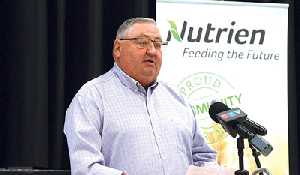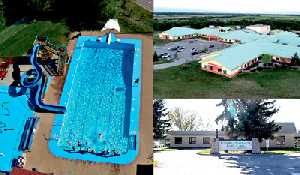Sask sees record overdose deaths in 2021
January 19, 2022, 4:06 pm
Sierra D'Souza Butts, Local Journalism Initiative Reporter


Nearly 1,000 Saskatchewan residents are believed to have died of overdose in the past three years alone, including a record number of deaths in 2021, according to a report from the Saskatchewan Coroner’s Service.
There were 464 suspected and confirmed overdose deaths in 2022, which is the highest number ever.
The number is up from 327 in 2020, 179 in 2019, and 172 in 2018.
The total is nearly four times the 119 confirmed deaths recorded in 2017, and nearly six times the 78 overdose deaths across the province in 2010.
The 2021 data are preliminary and could decrease, as some suspected deaths may be ruled out.


Fentanyl is the drug involved in the largest number of deaths in 2021, 154, followed by acetyl fentanyl in 123 deaths, hydromorphine in 26, methadone in 24, parafluorofentanyl in 18, and morphine in 16.
Some of the drugs are relatively new and don’t show up in earlier years stats. Parafluorofentanyl shows up in the statistics for the first time in 2021, and acetyl fentanyl showed up for the first time three years ago, when it accounted for 10 deaths, compared to 123 this year.
The report shows deaths from overdoses in all age groups from 10-19 to 70-79, with the highest number in the 40-49 and the 50-59 age groups.
The report shows deaths right across the province from overdoses, in communities large and small.
While the largest number of overdose deaths were in Regina and Saskatoon, drug overdose deaths were reported across the province in the last two years—in communities like Tantallon, Esterhazy, Langenburg, Yorkton, White Bear First Nation, Richardson, Regina Beach, Pelly, Melville, Lebret, Stoughton, Antler, Briercrest, Corning, Cowessess, Estevan, Fort Qu’Appelle, Kamsack, McLean, Odessa, and dozens of other communities across the province.
The government is reviewing a broad consultation completed by a provincial drug task force composed of law enforcement, health officials and bureaucrats.
In the throne speech, the provincial government committed to a number of measures to try to address the rise in substance abuse and subsequent overdoses.
“This session, my government will pursue further opportunities to increase the number of addictions treatment and detox spaces in the province,” the throne speech read.
“This will include partnerships with charitable organizations and third party providers, with the goal of adding another 150 treatment spaces over the next three years.”
Tweet



































